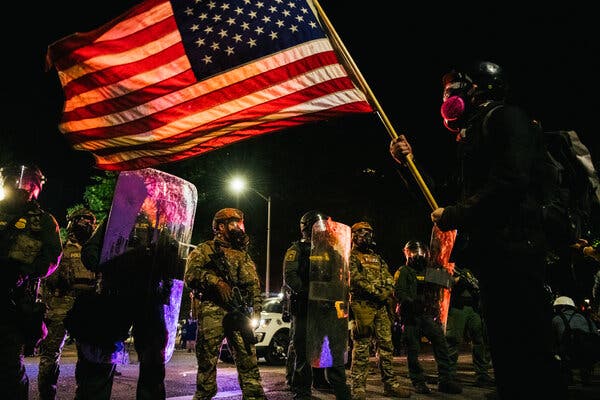“I’m not a big fan of doing anything where the federal government impacts local, state governments or schools,” Sen. Mike Braun, an Indiana Republican, said Wednesday. “I want schools to reopen, but I don’t like that. I don’t like the federal government getting involved.”
As negotiations within the party continued Wednesday, GOP senators made clear there were a number of White House demands that they unlikely were going to embrace, including the President’s demands to cut payroll taxes and to pull back on funding for coronavirus testing and tracing.
“I don’t think anybody’s satisfied with it,” said Louisiana Sen. Bill Cassidy, when asked about testing in the US, something that Trump has frequently touted.
Others were more critical of the Trump administration’s handling of the crisis.
“I don’t think it’s been a great example for the world to see America,” Utah Sen. Mitt Romney said of the President’s handling of the pandemic, pointing to the lack of rapid and accessible testing as well as shortages of personal protective equipment.
As the US struggles to get a handle of the crisis, Republicans have struggled among themselves to find consensus over their latest recovery plan, a measure that is expected to cost roughly $1 trillion and will serve as an alternative to the $3 trillion Democratic bill that passed the House more than two months ago. Many Republicans, including those up for reelection, are eager for another relief package to help millions of jobless Americans and bolster the US response to the crisis.
Republicans have yet to formally unveil their legislative proposal and are still sorting through various issues, but announced on Wednesday evening that they had reached agreement with the White House on one key element — the appropriations piece.
Sen. Roy Blunt, the chairman of the health panel on the Appropriations Committee, said the agreement would include $105 billion for schools that would be divided as $70 billion for K-12, $30 billion for colleges and universities and $5 billion for governors to use at their discretion.
Of the $70 billion, $35 billion would be for all schools on a per capita basis and the second half of the funds would be directed toward schools reopening and the costs associated with that.
Adding another obstacle to negotiations, some conservative Republicans are aghast at the roughly $3 trillion that has already been spent in the last few months to deal with the economic fallout and health toll from the pandemic — and are demanding Congress pump the brakes before spending even more.
“I am not going to authorize a dime until I understand what we’ve done,” said Sen. Ron Johnson, a Republican from Wisconsin. “I don’t think at this point in time, in the next three weeks, (we can) quickly rush through another trillion dollars of spending. I just don’t see the need for it.”
Republicans are working against the clock as they race to craft a proposal, and time pressure may ultimately help force consensus.
Senate GOP leaders on Wednesday rejected the possibility of a short-term extension to the $600 federal enhancement unemployment insurance, according to a source familiar. The White House floated the idea earlier in the day, but Republicans were concerned about removing the trigger for a deal.
As Trump has called for the country to return to business, he has loudly demanded in recent days that schools fully reopen — even threatening to withhold federal funding if they don’t.
Trump has railed against virtual learning as he raises the possibility of school funds being cut, tweeting earlier this month, “Schools must be open in the Fall. If not open, why would the Federal Government give Funding? It won’t!!!”
The President can’t unilaterally cut current federal funding for schools, though Congress can withhold additional aid through the power of the purse, something both the White House and Education Secretary Betsy DeVos have threatened in recent days.
“Ultimately, it’s not a matter of if schools should reopen,” DeVos said at a briefing earlier this month. “Simply a matter of how. They must fully open and they must be fully operational. And how that happens is best left to education and community leaders.”
DeVos later said: “If schools aren’t going to reopen and not fulfill that promise, they shouldn’t get the funds.”
But Republican senators said Wednesday they don’t expect the policy of tying money to reopening schools will be in the GOP bill — nor do many think it’s a wise idea. They said each school will have its own challenges, own unique circumstances in dealing with the pandemic and will need help from Congress to ensure their classrooms and facilities can safely operate. Some school districts may choose to do a hybrid approach — some remote learning, some in-person classes — and others might have to be closed if the virus is still ravaging their communities.
So Republicans say there’s little way to tailor federal funds to prod schools to reopen. The GOP is looking at proposing $105 billion to deal with the costs of schools reopening, as Senate Democrats call for $430 billion.
Indeed, Sen. Shelley Moore Capito, a West Virginia Republican who sits on the Senate Appropriations Committee, said she didn’t think the effort to make the money contingent on reopening schools is “going to stick.”
“There’s such sensitivities around the country to certain areas that can open more fully, certain areas have better facilities, and I just don’t think a one-size-fits-all is going to work,” Capito said. “I think you’re going to end up penalizing some people that are doing the best doggone job they can to get as many kids into school and learning again. That’s what I have trouble with.”
“No,” said Sen. Marco Rubio, the Florida Republican, when asked about tying federal dollars to schools reopening. “I don’t want to use federal dollars to force a decision on that. What I do think we should do, however, is provide funding necessary to put the kinds of things in place to make it possible to open schools. And there are costs associated with that.”
GOP Sen. Mike Rounds of South Dakota said of DeVos’ demands: “I don’t think I necessarily agree that every school is going to be operational.”
This story has been updated with additional developments Wednesday.



